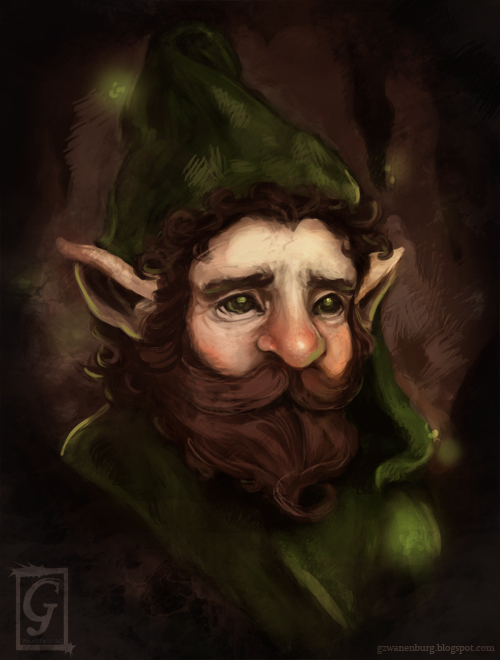Alfred Grimm
Last Mage of the Court of England

"Magic has rules. People like me make them."
Alfred Grimm
Sex:Male
Culture:Anglo-Saxon
Age: 36
Physical Description: Of an average build, Alfred looks younger than he actually is and usually hides his form beneath the robes of his position at court. He stands at about 5”11, and his forearms and hands bear the rough burn scars of someone who has made enough mistakes with magic to know how to avoid repeating them. Under the hood of his robes, his hair is short and closely kept, dark as a raven’s plumage, and his body is more toned than it is actually strong.
Occupation/Skillset: Alfred is a powerful and highly trained hermetic mage. His is the magic which is most reliable – the magic which, like any part of the natural world, follows laws. Aside from his ability in spellcasting, he is also an expert in magical lore and academics. If someone, somewhere, has done something magical, then Alfred has a good chance of being able to explain it – and if he can’t, then he’ll study it until he can. In the court of the Duke of Brittony he fulfils the position of the court mage, an advisor in all things magic, occasional interpreter of dreams – and a force to be reckoned with in his own right.
Personality: Alfred is an intuitive and perceptive person, wise and kind. His natural demeanour is an astute and guarded one, however, from his years in the court of The King of England and then in the court of the Duke of Brittony, where politicians were the most abundant species. He is inclined towards children, however, and looks to take on an apprentice at some point – if he should find someone young enough to have time to learn all he knows, with the right temperament, and the natural ability.
Backstory: Alfred Grimm does not have parents that he can remember, or put name and face to today. Instead, he was abandoned at the doors of the hall of King Edward the Confessor before his first birthday, apparently so that he could be taught the ways of magic by the court mage – a wise and elderly mage of the hermetic tradition, named Eamer of East Anglia, a name which no more told anyone his place of origin than ‘Eamer of Albion’ would have. Eamer the Mage remained as mysterious as this through much of Alfred’s studies, rarely speaking of his hometown or origins if ever. Despite this, he was a talented and creative mage, and a superb teacher.
Alfred Grimm – named so not for any family, but for the colour of his hair – would begin to learn the core magical principles and the very basics of spellcraft at about the age of four or five, in roughly the same period as he was learning to read, write, and laminate vellum. He took to it as a fish takes to water, or a bird to flight, and still looks back on this time with great fondness. As time went by, the lessons naturally grew more advanced, the relationship between Master and Apprentice deepened, and Alfred’s understanding of how things worked in the hermetic system grew and grew. He was passionate about learning – and equally as passionate about applying.
When he was 16, near a grown man by the world’s standards, he set about improving his abilities without his master’s guidance. This notion was motivated by his attraction to the girls of the court – daughters of minor noble houses, daughters of slightly less minor noble houses, servant girls, anyone really. This naturally made every decision he took in pursuing this goal rather unwise – and it came to a head when he tried to demonstrate a spell he had modified for them, a spell he had changed to make it more effective. It was indeed very effective – because he had removed the safeguards that made it tolerable to use.
He nearly lost his hands to an all-consuming magical fire. The girls he had been trying to impress never spoke to him again, terrified of what he could do and how little control he seemed to have. What kind of mage ends up bedridden for a fortnight because they didn’t know how to avoid setting their own flesh on fire? A dangerous and stupid one. He did not repeat this mistake.
Master Eamer was furious, but he did not once consider rejecting Alfred as his apprentice. He nursed him back to health personally, feeding him all sorts of vile tonics and potions in the name of his wellbeing – a practice which Alfred later suspected as being as much punishment as remedy. A punishment he accepted, though. From then on, he was more disciplined in his studies and practice of magic – a change Eamer appreciated, no doubt. He would gain many more scars and burns in his studies, of course – but they would be more in the name of experimentation and research than bragging.
Alfred went on to learn alchemy, medicine, scrying and the primitive forms of divination available at the time, summoning – though he rarely dabbles in that, - ritual magicks, and the art of perceiving the hidden and subtle flows and eddies of arcana and mana in the natural world. It was a happy time, and it changed much of how he lived his life. In time, he was also to learn the less arcane and more practical aspects of life at court. Table manners, for example. Also, politics, the basics of swordsmanship, the ins and outs of heraldry and nobility, and at one point philosophy and art.
Time wore on. Alfred grew wiser, smarter, and bigger… and his master grew old. Older than he already was. Smaller, weaker, sicker, too. Among the last things his master taught him before Alfred took over at the court mage was how to learn for himself – and how to teach others, as well; he remembers his master’s words well to this day –
“Alfred, you have always lived this life, you have always known magic. Your parents gave you to me because they had learned early that you were talented in this way – but many in the world have the gift, and never know.”
“Alfred, you will know when the time is right, you will know who is right. Some day, find an apprentice of your own. Teach them. Pass on your knowledge. I have already taught you more than I thought I could.”
“Alfred… you have been wonderful. Every day I have been thankful to be able to teach you. When my time comes… bury me in Gwent. It’s where I grew up. Where I learned what you’ve learned here, from me.”
His master lived for three years after Alfred took over his role at court, giving advice, still practicing magic, always learning. When he died, it was quick, quiet, and peaceful.
Alfred grieved, and took three months from his time at court to return Eamer to his hometown in Gwent.
When he returned though, he found that things had changed somewhat. For one thing, a woman named Edyth – one of the girls he had once tried to impress – was visiting him more and more frequently. For another thing, so were some other noble women. Some for potions for their complexion, some for potions for fertility, some for various other potions for various other things. Knowing that this would not make him popular with the men of the court, he tried his best to spend more time with the former than any of the latter – she was a servant, and charming, but not the kind of person any of the noblemen were likely to have keen interest in.
He was wrong.
She was beautiful, and very loving, and bright, and the subject of a torrid affection on the part of an admittedly minor noble, but still noble enough to ruin Alfred’s day – especially when his dear Anise ran to Alfred crying, a bruise across her cheek.
He had never been so angry.
Had it not been for the physical proof of the young noble’s assault on Anise, and his own high standing in court, he would likely have been executed for what he did to the offender.
Instead, he was exiled – so that he might “… become Brittony’s problem.”
On the bright side, Anise was unlikely to receive any unwanted attention for quite some time – the last man to give her any had ended up as something of a cautionary tale at court, his own standing ruined too.
And naturally, mages and wizards have plenty of work going. It was only a matter of time before he ended up in service to the good Duke, as he had been for some years before the quest began.










